17 Gross Household Items You Should Replace More Often
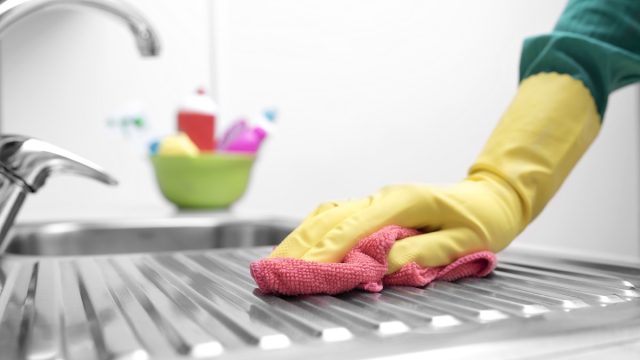
We’ve all been guilty of holding onto things well past their prime, whether we’re trying to convince ourselves that those ragged sneakers can last another year or that last week’s takeout is probably still fine to eat. However, when it comes to your health and safety, you might want to expedite the schedule with which you’re replacing some of your household essentials. With the help of cleaning experts, we’ve rounded up the supplies you should be replacing more frequently—and how to know when it’s time to give them the boot. And for more genius ways to spruce up your home, check out these 27 Amazing Cleaning Tips You’ll Wish You Knew Sooner.
1
Water Filters
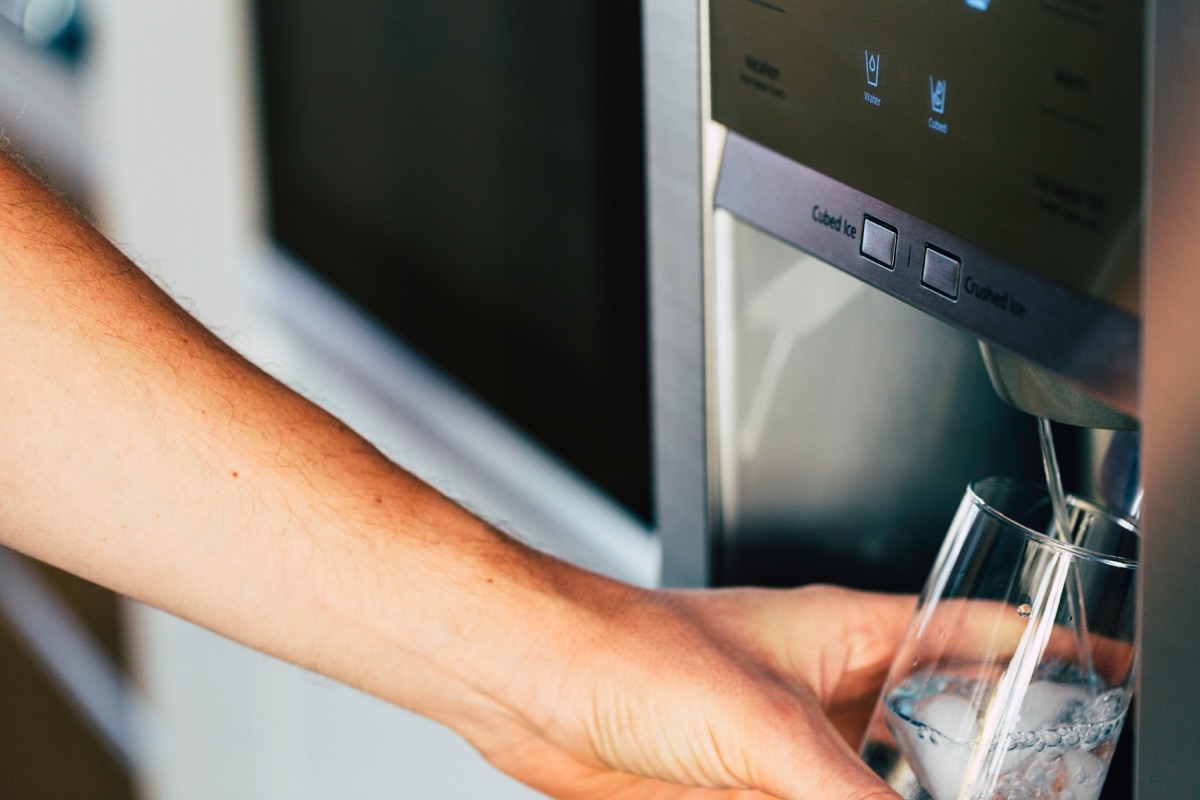
It may seem like your water filter is getting rinsed with every use, but it can actually be a major breeding ground for bacteria if you’re not changing it frequently enough.
“The filter on your refrigerator doesn’t just affect the water you drink, it also affects the quality of the ice it’s making,” explains Jennifer Rodriguez, chief hygiene officer at Pro Housekeepers, who recommends replacing refrigerator water filters every six to eight months.
2
Toothbrushes
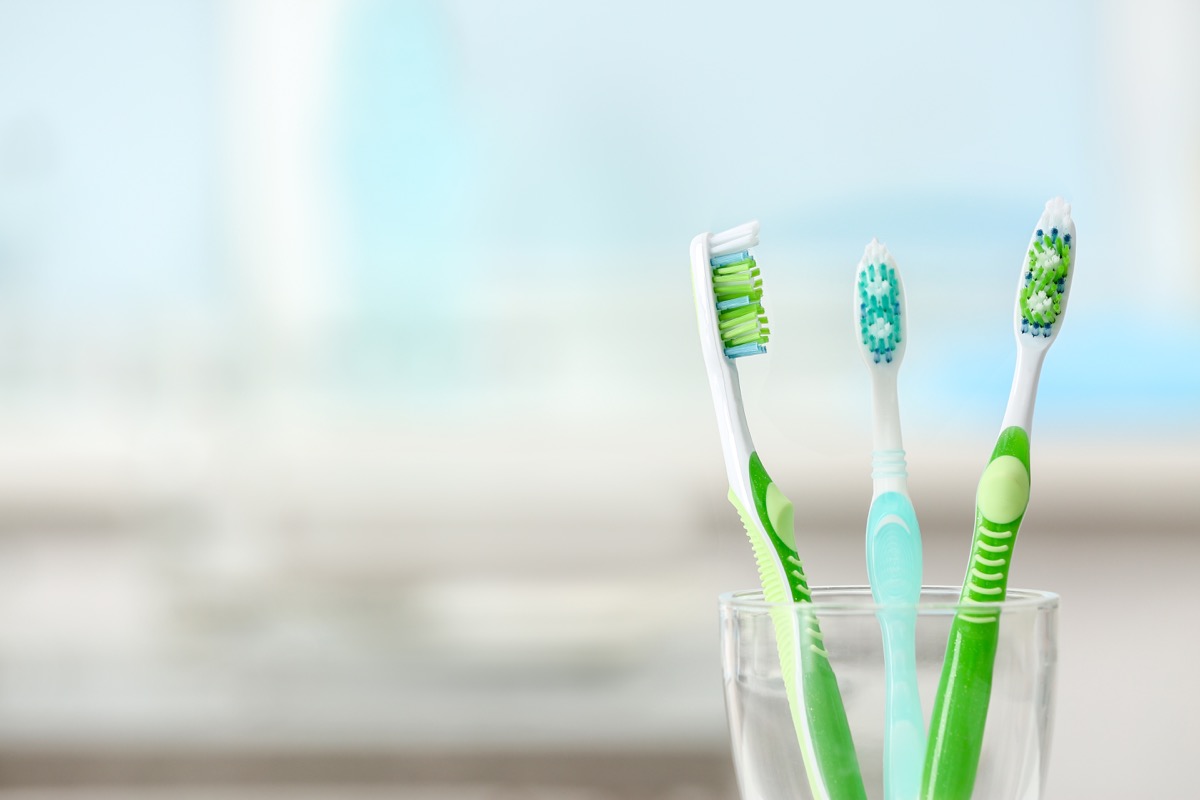
Think your toothbrush has to look ragged before it’s time to get a new one? Think again.
“Most people do not clean their toothbrushes as often as they should, and they harbor germs,” explains Tom Klimaszewski, a certified infectious disease prevention expert with the Chicago-based cleaning service, Bee Line Support.
Klimaszewski recommends keeping toothbrushes covered or storing them inside a drawer since toilet flushes “can spread microscopic bacteria, including E.coli, up to six feet.”
3
Hand Towels
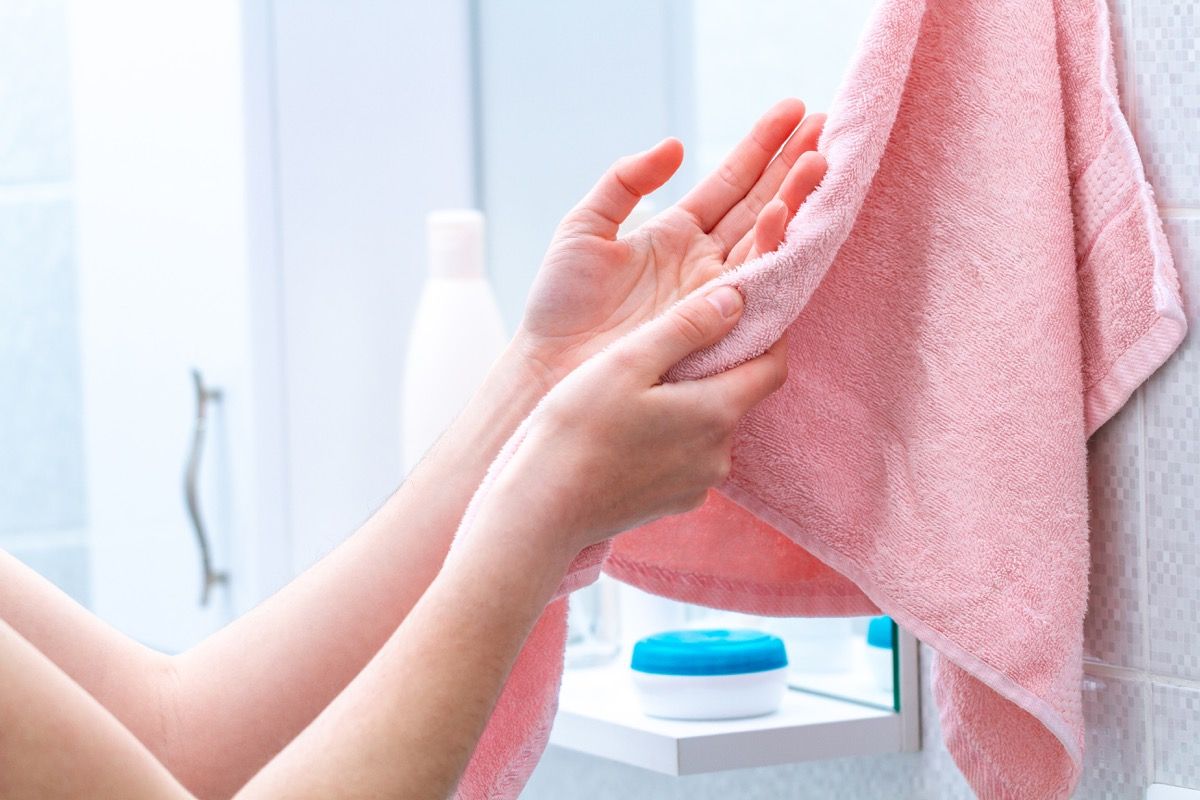
If you’re not replacing your hand towels every two years or so, they could be harboring dangerous bacteria. That’s why it’s important to wash them as often as possible.
“Especially now, paper towels are a safer bet, if you’re not laundering your towels regularly,” says Klimaszewski. And if you want to keep your space cleaner, make sure you know The 13 Dirtiest Things in Your Home, According to Science.
4
Bath Mats
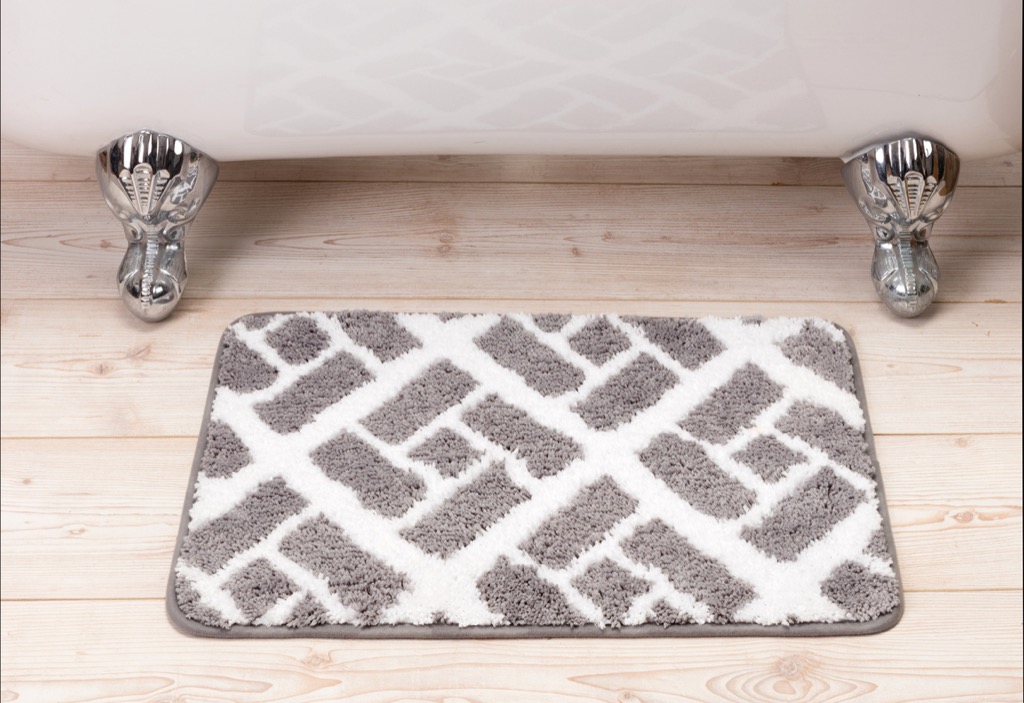
Since they are typically kept in moist environments and are in frequent contact with germs from your body, hanging on to that bath mat for too long could mean you’re creating a breeding ground for mold and mildew.
Justin Carpenter, owner of Modern Maids, a Dallas-based house cleaning service, says that bath mats should be replaced every two years. He also recommends washing them regularly between replacements. “This ensures they stay germ free, especially if you have multiple people using the same mat,” he explains.
5
Mops
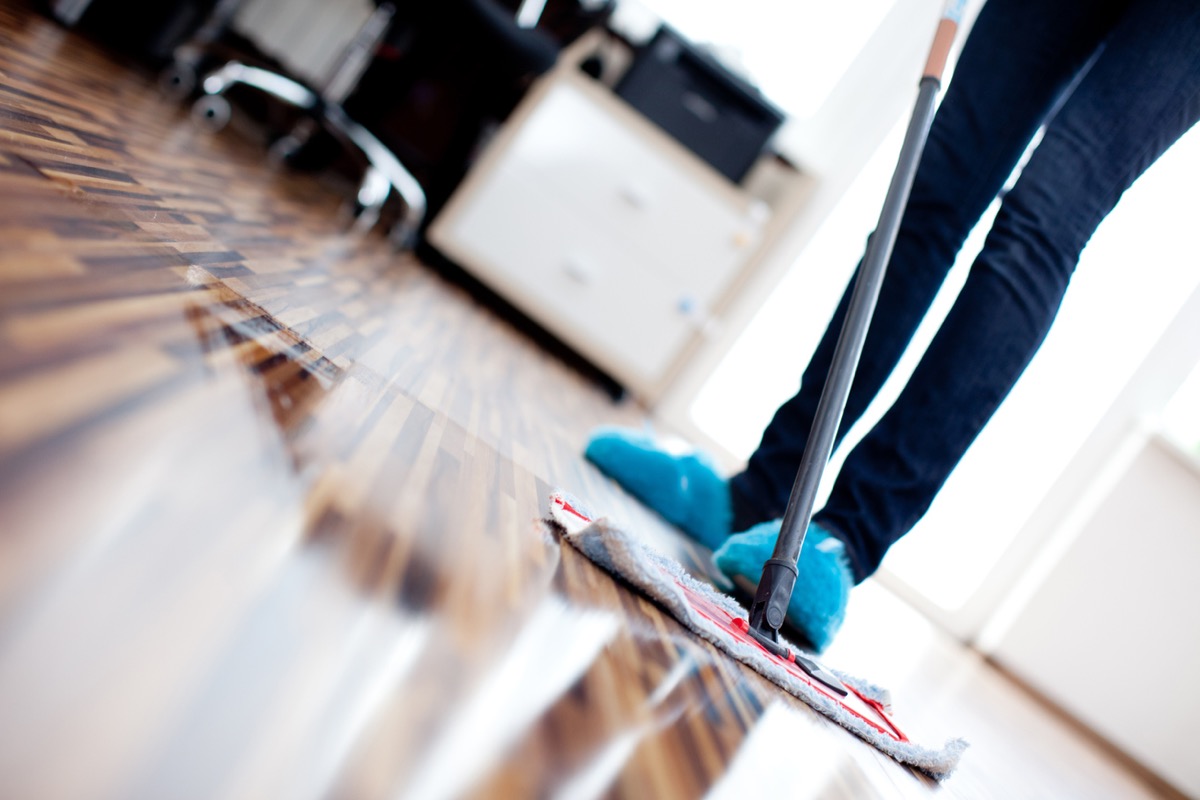
If you’re not replacing your mop cloth frequently, you could be making your home dirtier than if you didn’t mop at all.
“By frequently replacing your mop, you are ensuring that it is doing its job cleaning your space and not becoming a hazard by leaving germs and bacteria behind,” explains Carpenter, who recommends replacing mop accessories every other month.
6
Cleaning Rags
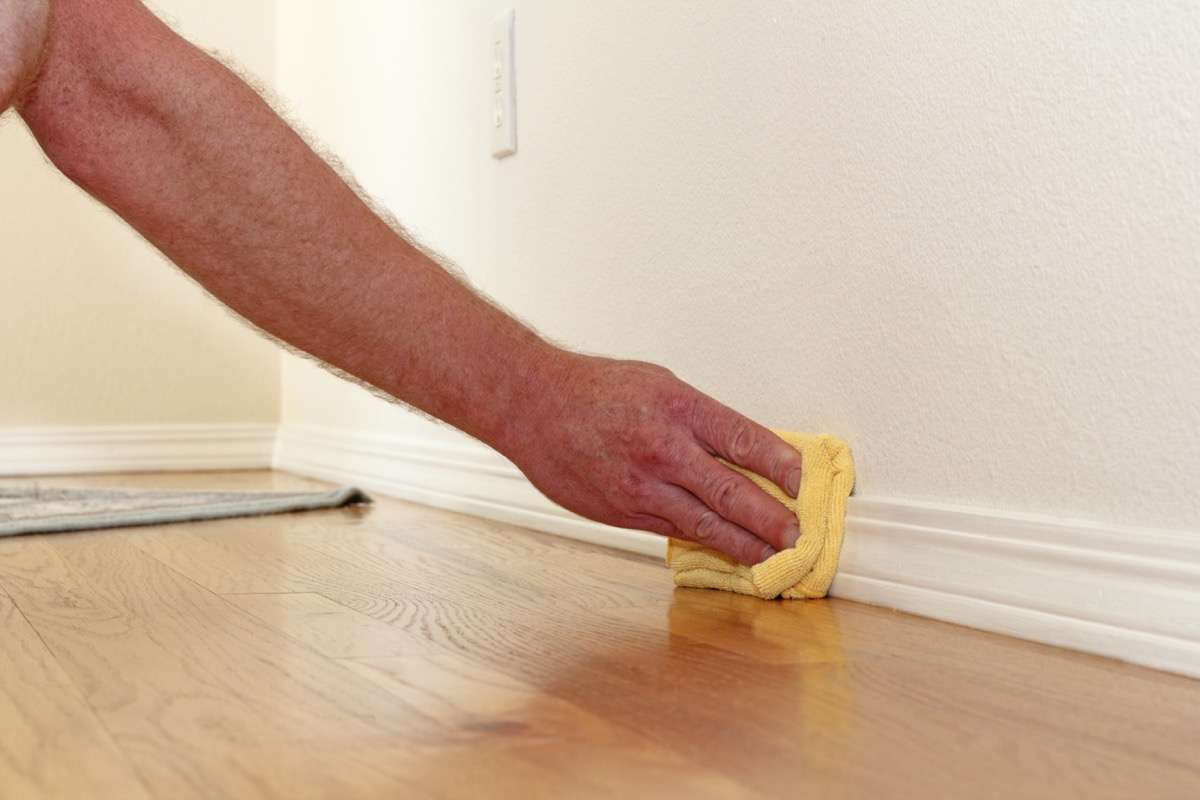
Sure, you may use them to get your house clean, but those cloths aren’t exactly germ-free.
Carpenter suggests only using rags once, then throwing them in the laundry machine instead of letting them stay damp under your sink or in a closet. You should also completely replace rags every two years.
Not only will frequent cleaning and replacement help reduce the spread of bacteria, “the new cloths will absorb more solution and allow you to finish your tasks in a reasonable amount of time,” explains Carpenter.
7
Toilet Brushes
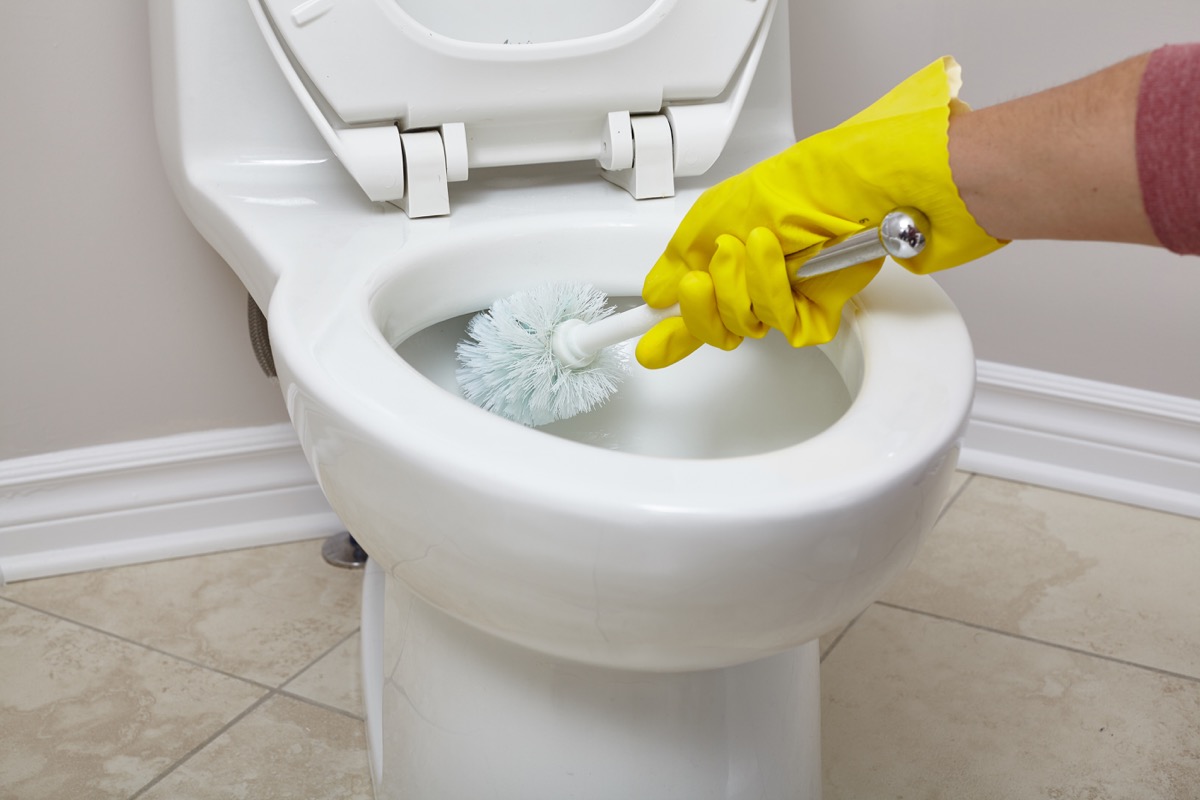
If you’ve been holding onto that toilet brush for a long time, you’re probably overdue for a replacement.
“The toilet brush is used to clean one of the dirtiest places in your home, therefore it hosts a lot of bacteria and germs,” says Carpenter, who recommends replacing yours every six months. And if you’re not sure where to start cleaning, These Places in Your Home Are Dirtier Than Your Toilet.
8
Kitchen Sponges
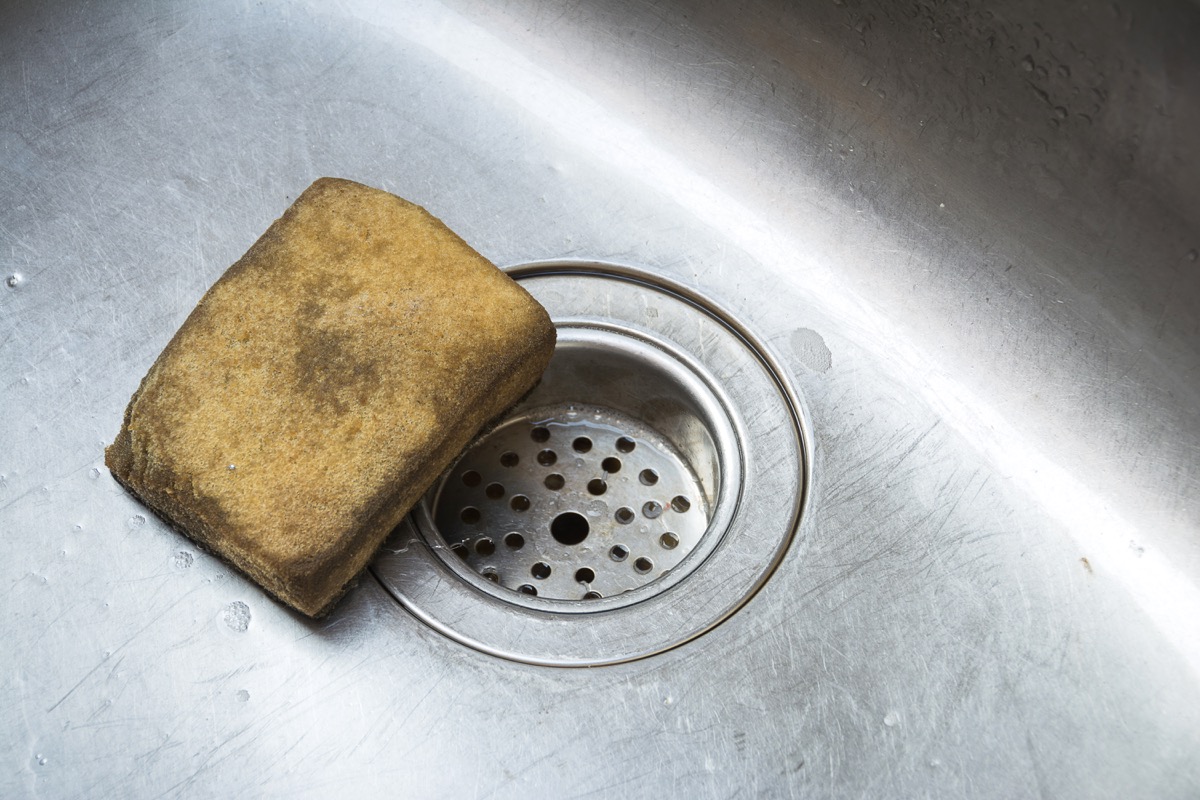
If you want to prevent the spread of potentially dangerous germs around your home, you should be replacing your kitchen sponge frequently.
“Sponges are a breeding ground for bacteria, which can cause illnesses because they are often left on your counters,” says Carpenter, who recommends replacing them once a week. And if you’re considering simply cleaning them instead of replacing them, think again: a 2017 study published in Scientific Reports reveals that microwaving sponges didn’t significantly reduce their bacterial load.
9
Air Conditioner Filter
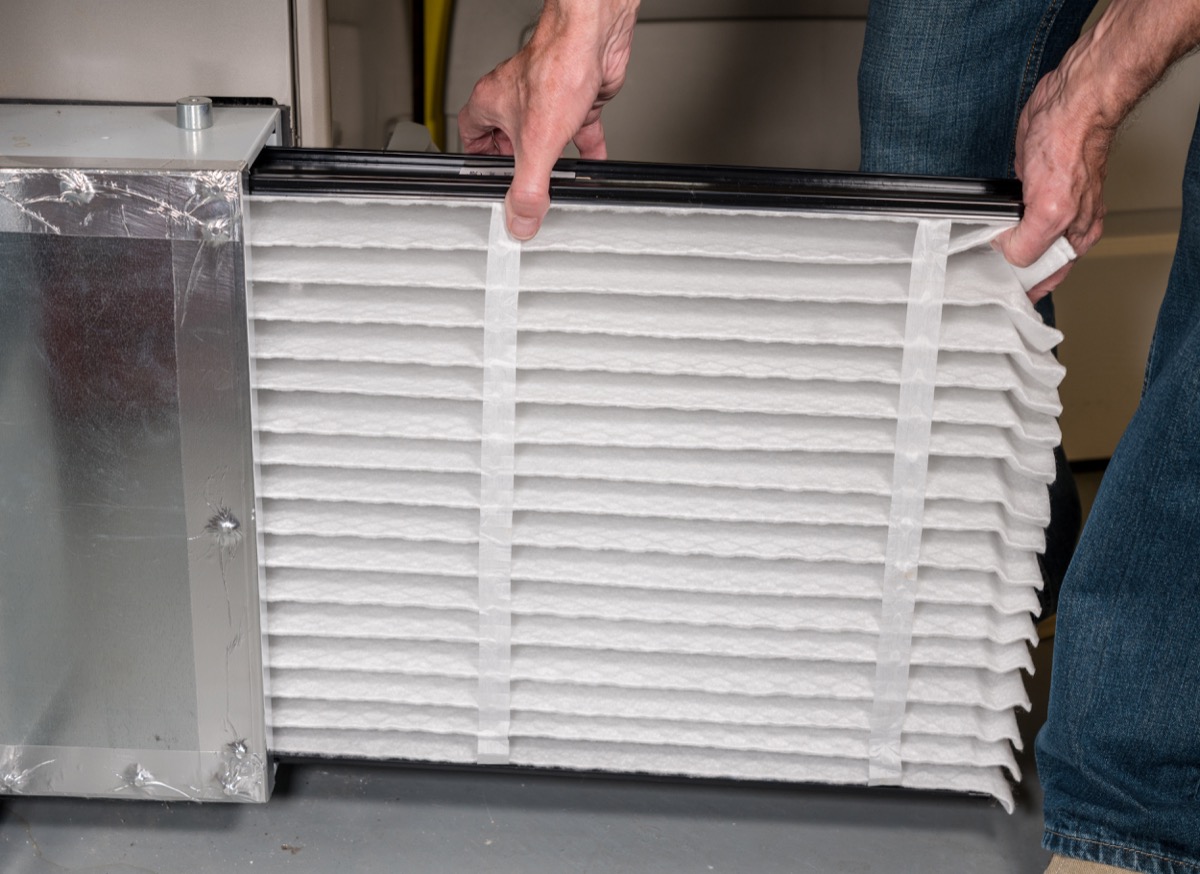
Your air conditioner filter is keeping dirt and other debris from entering your home—but if you’re not changing it frequently, it’s simply adding those contaminants to your household air.
“Dirt in the filter shortens the life of your air conditioner because dirt pulls into the inner workings of the unit,” says Marla Mock, VP of operations at Aire Serv, a Neighborly Company. She notes that a dirty filter can also cause an increase in your electric bill. To play things safe, Mock recommends replacing AC filters once every three months.
10
Pillow Cases
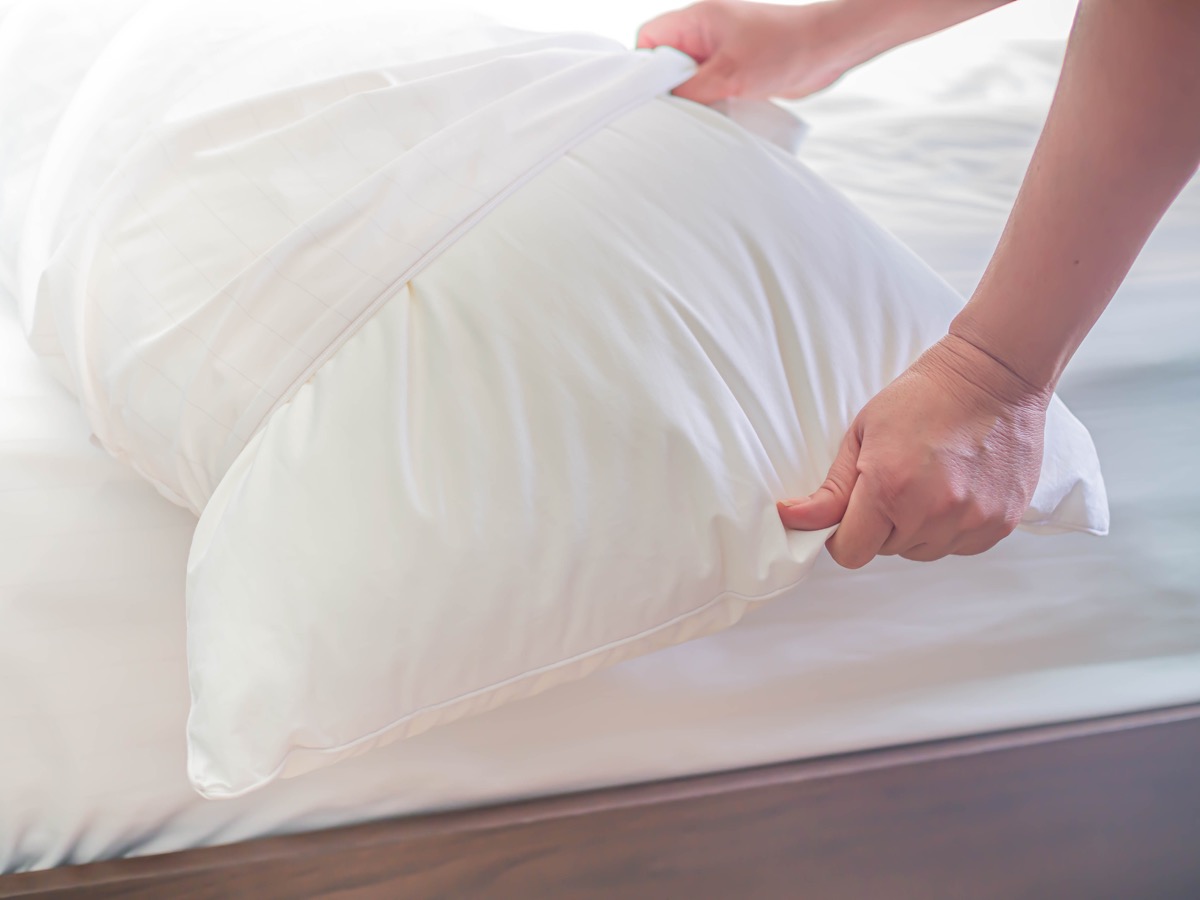
Since pillow cases can harbor dust mites, they should be washed at least once a week, and they should be replaced every few years.
As a preventative measure, Amy R. Bloomer, founder and owner of Let Your Space BLOOM, LLC, Professional Residential Organizing, recommends using allergy covers under your pillow cases, which are woven “so even dust mites can’t slip through them.” Bloomer also suggests avoiding going to bed with wet hair, which can make your pillowcase a breeding ground for dust mites and bacteria.
11
Pillows
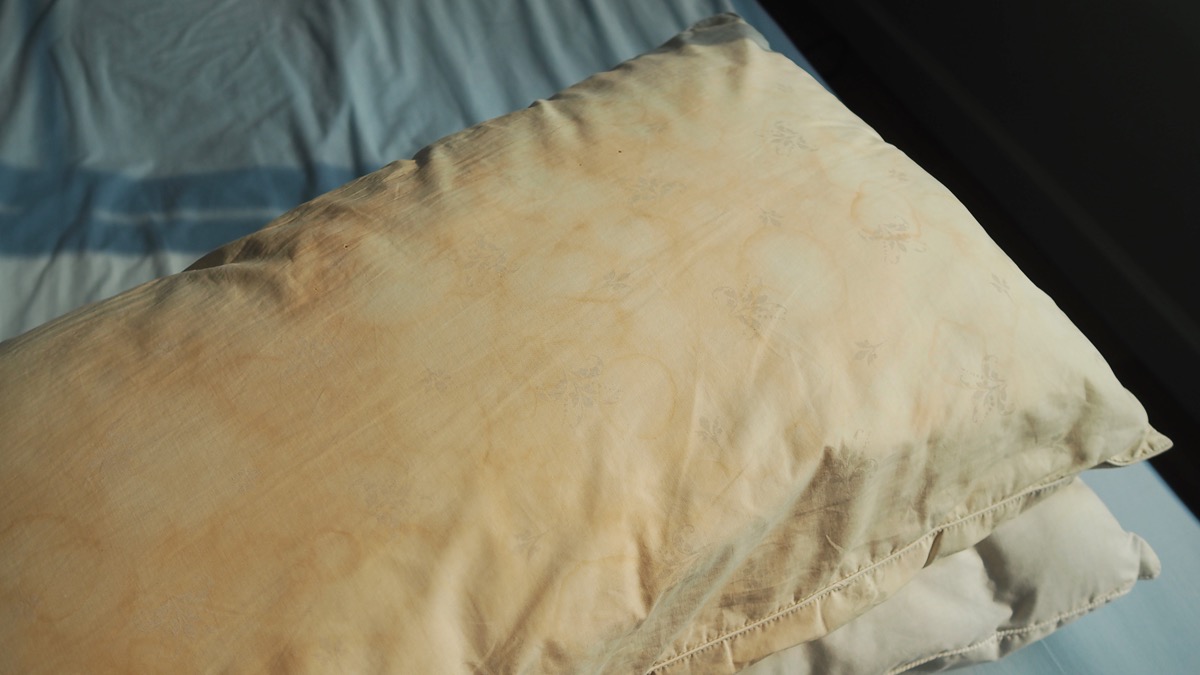
If you’ve been toting around the same pillows since childhood, it’s high time you upgraded to a new set.
“Pillow are great environments for bacteria, dust mites, dead skin cells, and a bunch of other nasty things,” says Rodriguez. However, unlike other items that can be effectively cleaned through laundering alone, Rodriguez says that even regularly washed pillows should be replaced every two years.
12
Bath Towels
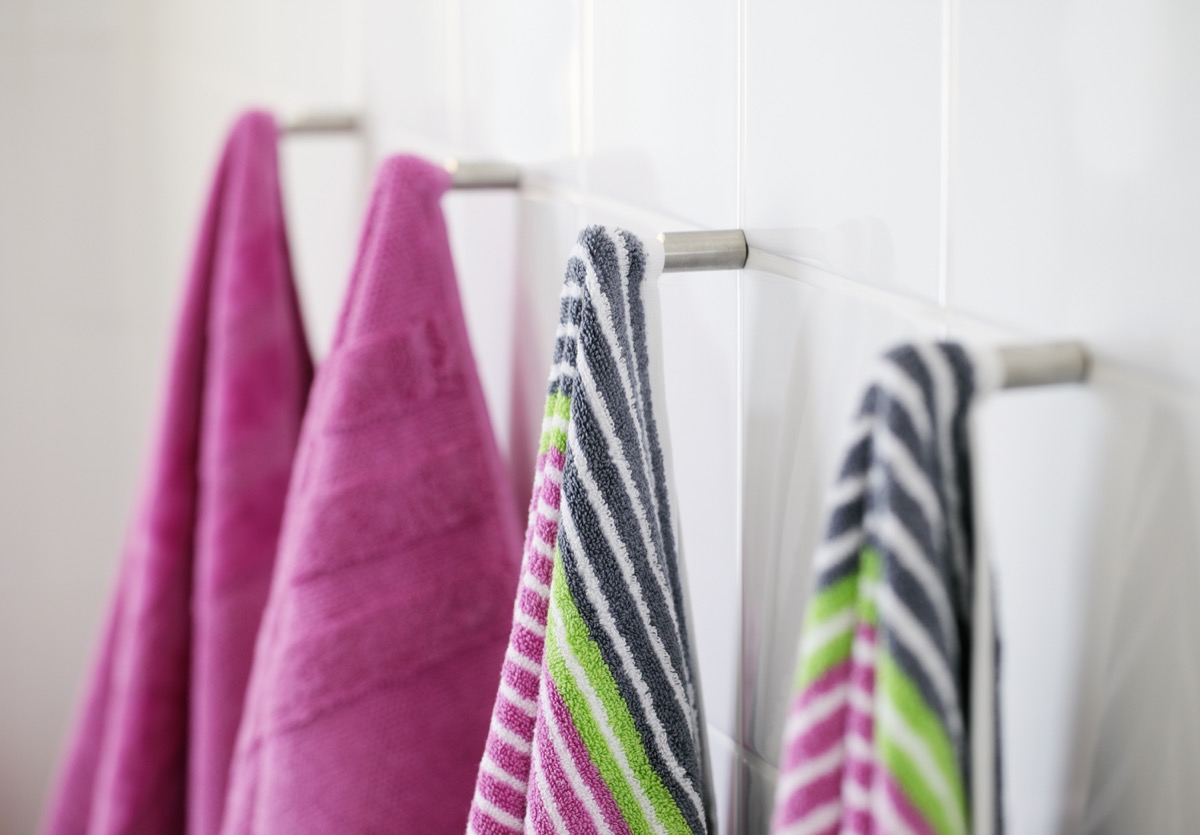
Are you getting your body dry with that towel, or just adding bacteria to it? If you’re not replacing those towels every two or three years, it’s probably the latter.
“Towels harbor E. coli, which are pathogens for humans; they also harbor coliforms, a fecal indicator bacteria, which basically tells you there are feces inside the towel; lastly they harbor yeast and molds, which could be problems for people with allergies,” explains Bloomer. Her recommendation? Wash your towels weekly in hot water, open your bathroom door whenever possible to keep the room dry, and rotate towel sets frequently.
13
Sheets
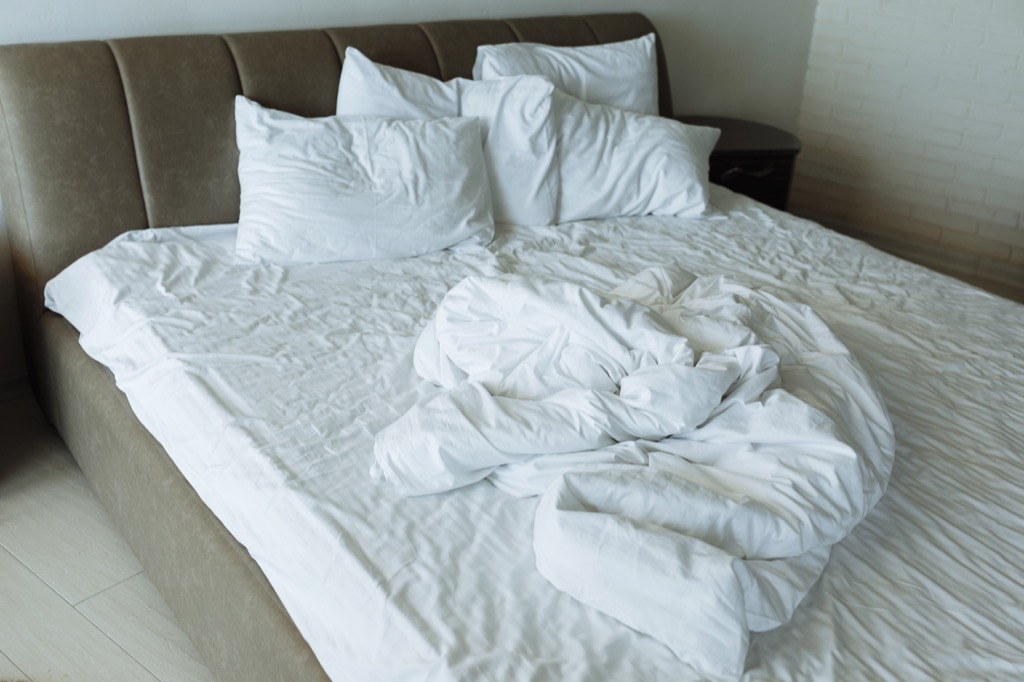
Fido may love sleeping in your bed with you, but his presence might mean you need to replace those sheets more often than you think.
While Bloomer says that regularly washed sheets can last up to a decade, she also notes that they can harbor the same bacteria as towels—and the bacterial count (and frequency with which you need to replace them) only increases if your pets sleep in the bed with you.
14
Slippers
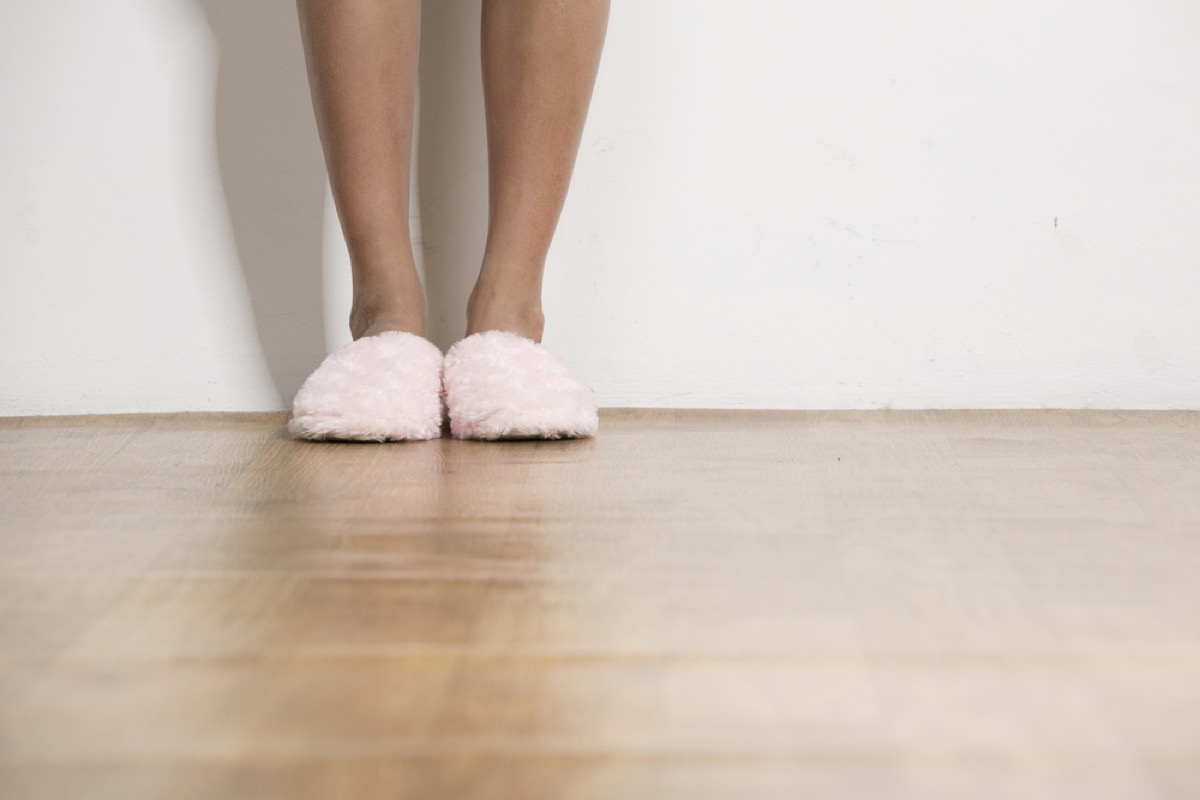
Those comfy slippers should be replaced way more than your average pair of shoes.
“If they don’t have a sturdy rubber sole, like Uggs, which can be wiped down with Clorox wipes once per week, then throw them out after three to six months—especially if you wear them outside and barefoot,” says Bloomer, who notes that they can become bacterial breeding grounds otherwise.
15
Mattresses
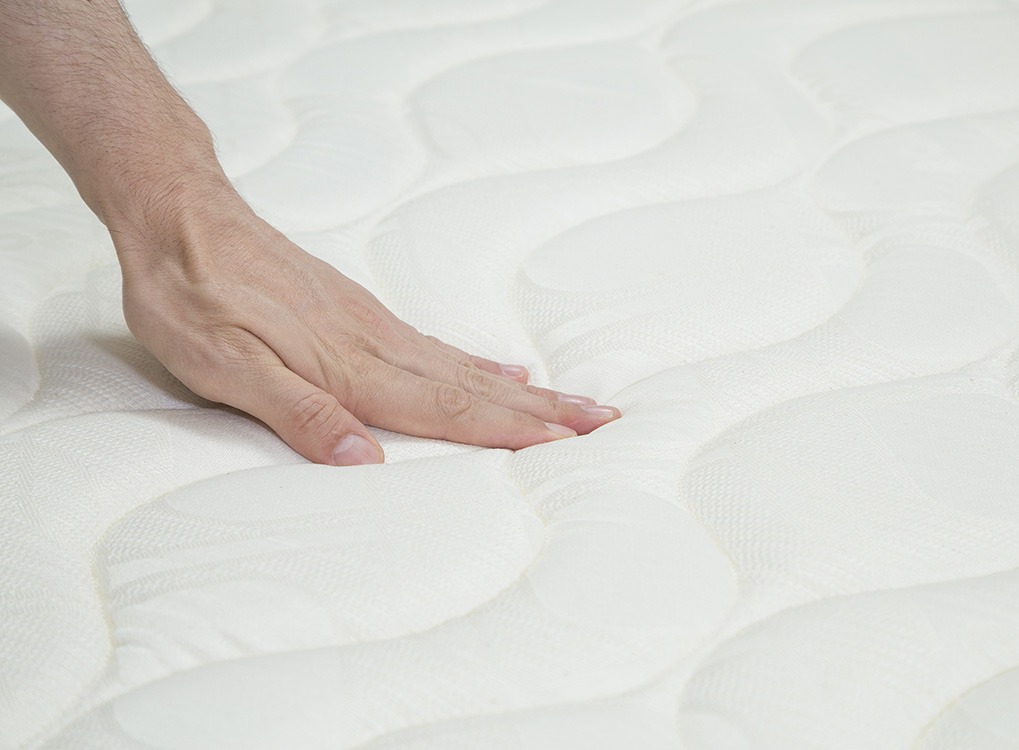
Just because it cost you a pretty penny doesn’t mean that mattress is a lifelong possession.
“Mattresses need to be changed every five to seven years,” says Donna Atanasova, a cleaning expert with Fantastic Services Australia. According to a study from Amerisleep, the average seven-year-old mattress has about 16 million colony-forming bacteria on it—versus just three million on a mattress under one year old.
16
Vacuum Cleaner Filters
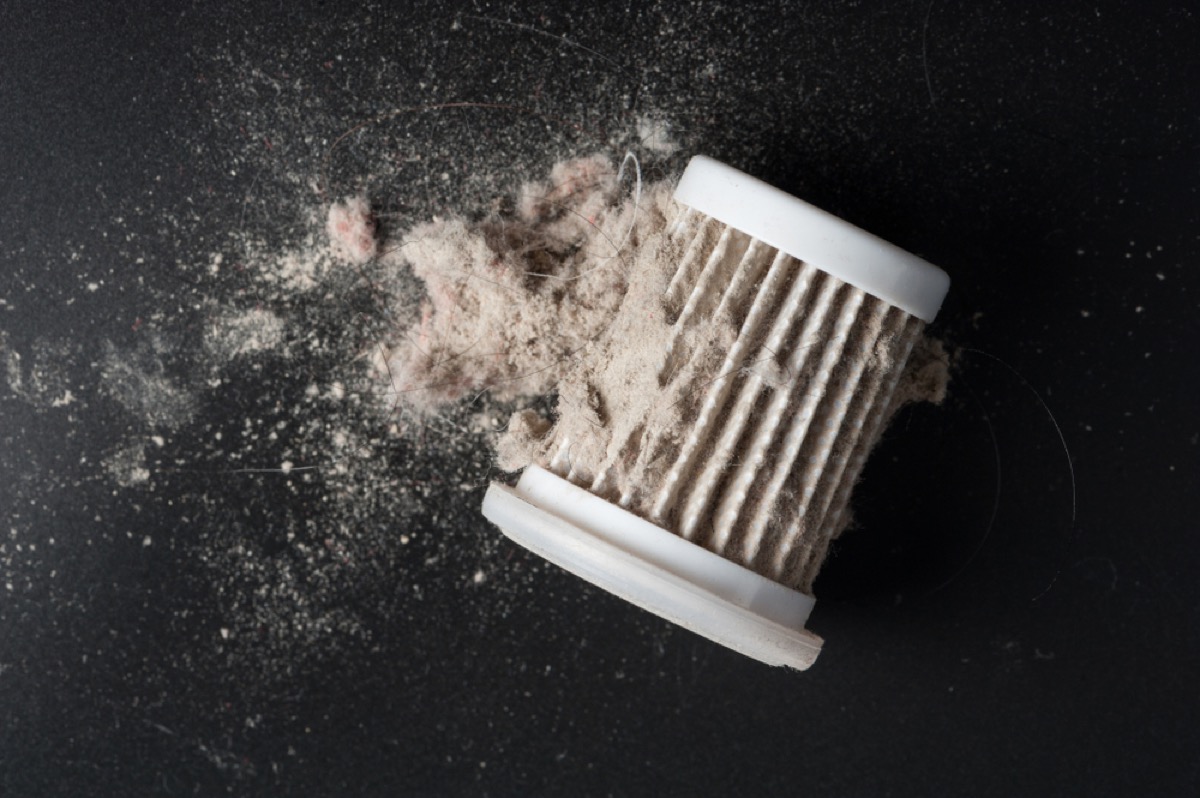
Its purpose is to suck dirt and debris up off your floors—so make no mistake, your vacuum cleaner is positively filthy.
“If the filter is not changed regularly, it can leak small particles like dust and dander out with the exhaust air,” says Matt Clayton, founder of Pet Hair Patrol. To keep things cleaner, swap out your filter every three to six months.
17
Doormats

Swapping out your doormat can help keep your whole home cleaner. Doormats should usually be replaced every two years, or even more frequently if they’re looking worse for wear.
If you want them to last longer, “You need to have a couple of ones and change them and clean them once in a while,” says Abe Navas, general manager of Dallas-based Emily’s Maids, who notes that if you keep them around for too long, they’ll start adding dirt and bacteria to your shoes and home instead of eliminating it.